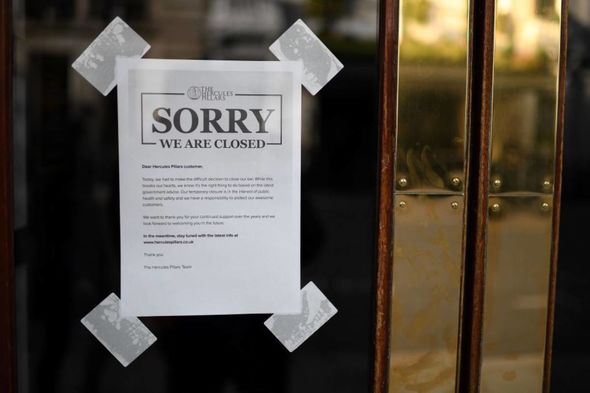The hospitality industry has written to Cabinet Minister Michael Gove saying that an extended period of social distancing measures could cost one million jobs unless measures to protect hospitality businesses are put in place.
UKHospitality recommends a six-point plan to help the country’s hospitality businesses reopen following the crisis and save jobs and businesses.
Recognising that public health must be the paramount objective in Government policy, the letter highlights how many hospitality businesses would not be able to operate profitably while implementing social distancing measures and set out the need for a pragmatic, evidence-based plan to help businesses open when it is safe to do so.
The letter stresses the need for a phased approach to avoid a “yo-yo effect” of openings and closings which could see businesses fail and see up to one million jobs lost.
The plan sets out the level of support that the sector needs to reintegrate into the economy, to avoid in excess of one million redundancies and to ensure much-loved local businesses and high-street brands can survive the crisis.
The organisation recommends the extensionof the furlough scheme beyond the end of June for hospitality,legislative intervention on rent payments and approved access to capital.
Going forward it says that a comprehensive fiscal package will be needed to stimulate demand post-crisis, there should be an overhaul of business regulation and a guaranteeing a functioning and responsive insurance market
UKHospitality Chief Executive Kate Nicholls said:
“With social distancing measures still in place, reopening the hospitality sector without a plan would be catastrophic.
“The hospitality sector was one of the first hit by the crisis and the hardest hit in terms of lost revenue. It will also be one of the last to fully emerge from the lockdown.
“An extended period of social distancing will mean that many hospitality businesses will not be able to operate fully, and many will not be able to open at all. Hospitality is a sector built around socialising, so there must to be Government support for businesses that continue to be hit by this crisis.
“We need a plan of phased opening for our sector. For those businesses that can trade safely with social distancing measures still in place, they should be able to. For the many venues where it is not possible, support, such as the furlough scheme, must be extended to make sure these businesses stay alive and jobs kept open. We can’t have a situation where, overnight, the entire sector is suddenly expected to hit the ground running.
“If the correct support is not in made available to help businesses get back to work when the time is right, then businesses will have survived the immediate crisis only to find themselves out of business during the aftermath.”
Responding to the plan,Sacha Lord, Night Time Economy Adviser for Greater Manchester said:
“We’d all love to get back to normality, but for businesses where there is a risk of close social contact, like bars and restaurants, I doubt we’ll be able to revert to 2019 levels of capacity for some time. I expect that even if the tighter restrictions are lifted at some point when safe to do so, we’ll see the social distancing measures continue for many months ahead, which is a huge blow to hospitality and leisure operators.
I’ve seen some shops and venues in Asia are now beginning to operate ‘one in, one out’ measures, coupled with temperature testing on entry, so this is something we might see introduced as restaurants and bars slowly begin to reopen, but I do have major concerns for the nightclubs and music venues where social distancing is near impossible to implement.
Although it’s been an overwhelming and difficult few months, we must try to remain positive and navigate through the various restrictions as best we can. Despite the inevitable downturn, I do believe there will be a surge of people wanting to go out as the lockdown is lifted, and we could see strong figures in terms of individual spend, especially in the mid to high end restaurant and pub sectors. Limits on capacity will be frustrating, however I anticipate a steady stream of customers to the smaller, local independents as the public are forced to find alternatives to their typical city centre go-to venue and prefer to stay closer to home.”







